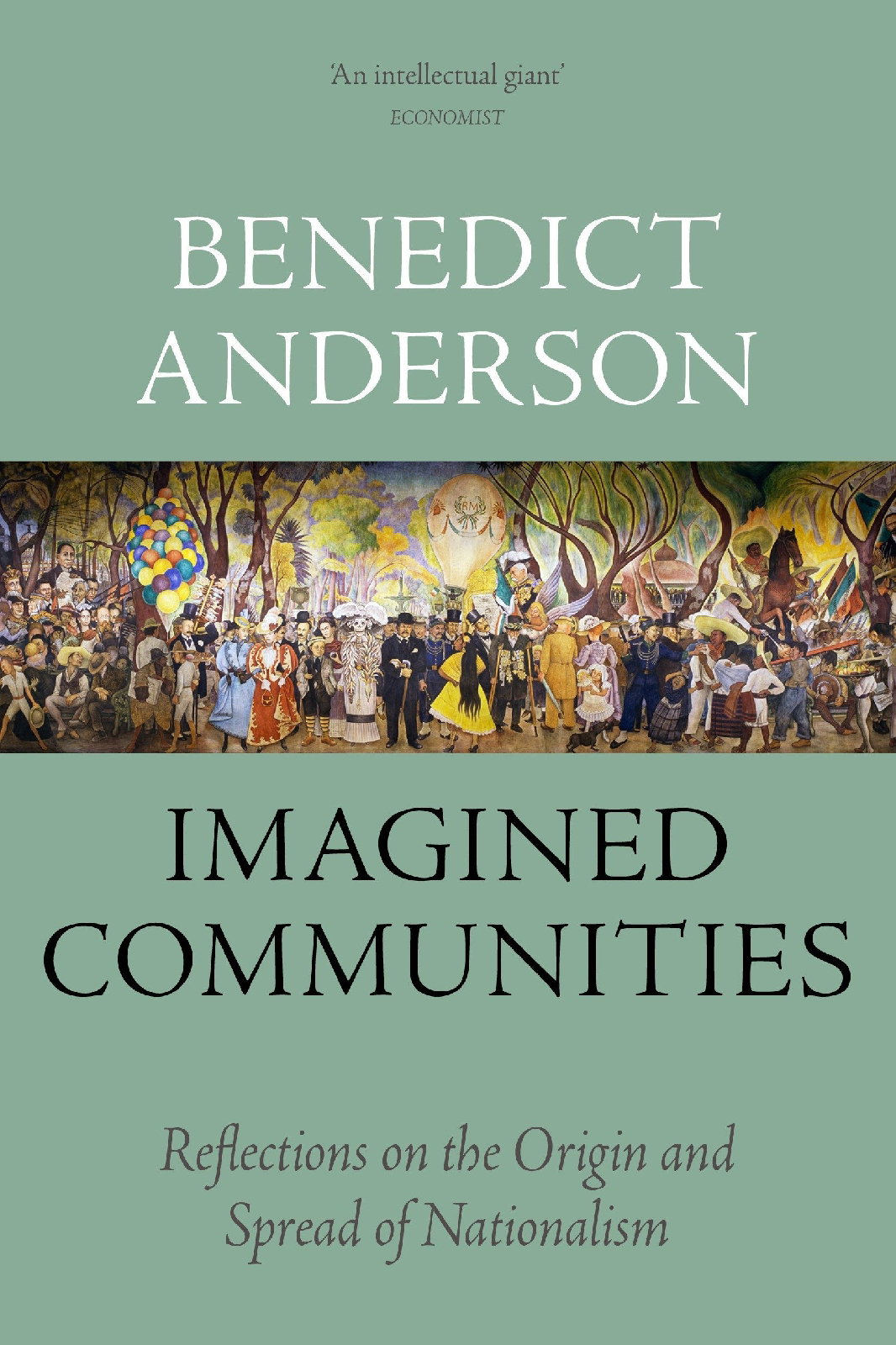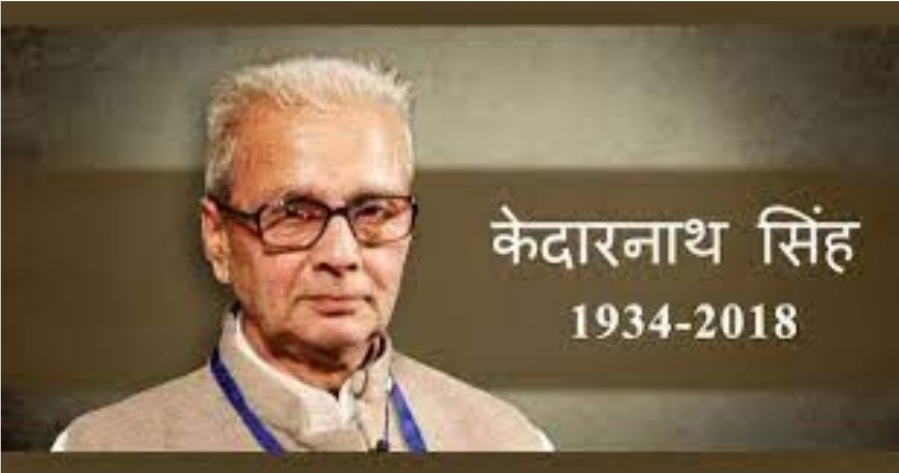CAN "IMAGINED COMMUNITIES" GET MATERIALISED?
The concept of Nation, as contended by Ernest Renan, is a novel idea. Many scholars like Walter Benjamin, Victor Turner, Benedict Anderson inter alia have attempted to analyse nation. The very term nation both etymologically and conceptually proved to be a problematique leading every scholar, venturing to define it, into a labyrinth. Ernest Renan begins his essay What is a Nation? by voicing the confounding nature of nation "I propose to analyse with you an idea which though apparently clear lends itself to the most dangerous misunderstandings."(Renan 1). Elsewhere in Imagined Communities, Benedict Anderson also mentions the futility in defining nation "Nation, Nationality, Nationalism-all have proved notoriously difficult to define."(Anderson 19). Partha Chatterjee in his Whose Imagined Community? talked of the perpetual perplexity associated with the concept of Nation " Nationalism seems to have regained sufficient notoriety for it to be liberated from the arcane practices of area specialists..."
Partha Chatterjee
In his work Imagined Communities, Anderson argues that nations are not sprouted all of a sudden out of the blue but are constructed by certain cultural, political and social factors. He also maintains that many of the nations are formed by copying the modular forms of independent nations which have formed prior to them. Despite stating that nation is beyond definition, he defines nation as an "imagined political community-and imagined as both inherently limited and sovereign."(Anderson 21-22). According to him, there is a certain emotional fervour associated with nationalism which makes the compatriots sacrifice their lives for the wellbeing of their respective nations. This distinct singular ardour is peculiar to nationalism and no other political creed shares this trait.
In his opinion, nationalism is a unifying factor which binds a group of strangers into a nation. This is one of the major reasons why he portrays nation as an "imagined" community . Though the citizens of a country remain oblivious of the existence of their fellow countrymen ,they view themselves as the part of a nation. None was able to justify the rationale behind people sacrificing their lives for this abstract concept called 'nation'. Anderson also opines that the major end of Nationalism is to fill the lacunae in politics and society. To back his argument, Anderson cites an example from the Enlightenment Period, where Nationalism took the superior position of religion and deposed it from its lofty pedestal.
In the chapter titled "Cultural Roots", Anderson talked of the roles played by News Papers and Novels in 'imagining' a nation. He elucidated how the characters in the novels mould the mindset of the readers and frame their perceptions regarding the relations shared by the characters who hardly meet one another. Anderson also discussed about the alchemy behind placing varied news items side by side on a same page. He also tries to glean the effect this positioning of news stories has on the readers. According to him, these articles are grouped together because of imagined reasons. Perhaps, the news stories might have happened simultaneously, or would have been read by people of the same geographical regions or on the same day, most probably on the day the articles get published.
"The second source of imagined linkage lies in the relationship between the newspaper as a form of book and the market." (Anderson 70). From his standpoint, one can infer that News Papers and Books are a few commodities which were popularized under Industrial capitalism.
Partha Chatterjee in his Whose Imagined Community? (which is anthologized in Gopal Balakrishnan's Mapping The Nation) comments on the concepts of nation propounded by Anderson. Chatterjee says that nationalism, in general, was deemed to be a present to the entire world from the side of Europe. People tend to be unmindful of the distinction between 'positive' and 'negative' nationalisms. Ernest Renan holds that many a time, certain nationalism have led to immense bloodshed which obviously is a threat to world peace. It is true that the colonies got the first taste of nationalism from their colonizers, yet they never tried to ape the European "modular forms" rather they preferred to be different from the European models. Chatterjee refutes Anderson's statement that nations are formed by imitating the European prototypes. He posits that if nations are modelled on existing ones, how can there be rooms left for imagination. According to Anderson,Colonies are forever destined to remain as consumers of western products.
"Europe and the Americas, the only true subjects of history, have thought out on our behalf not only the script of colonial enlightenment and exploitation, but also that of our anti-colonial resistance and post-colonial misery(Gopal 216)
Chatterjee claims that the problem lies in India's historiography. Every historical account places the beginning of Indian Nationalism at 1885 with the emergence of Indian National Congress. As per the historiographies, colonialists have imbued Indian tradition with enlightenment thoughts and this is how nationalism emerged. This argument inevitably supports Anderson's contention. But Chatterjee says that "anti-colonial nationalism creates its own domain of sovereignty within colonial society well before it begins its political battle with the imperial power."(Gopal 217)
This sovereignty is attained by categorizing the social institutions into two viz., the material and the spiritual. The material realm which includes economy, science and technology is irrevocably dominated by the West and the East has no other option left than to scrutinize the western models and create a replica of the same. In contrast to this, the spiritual realm is the embodiment of a nation's essence, where no colonial intervention is entertained. NATION, AS AN IMAGINED COMMUNITY GETS MATERIALISED IN THIS SPIRITUAL REALM. Chatterjee says that this part of history is left out by most of the routine historiographies.
Anderson talks of how a "sacred language" creates unified religious communities. Latin helped people of various regions and languages to communicate with one another. Since nationalism replaced religion, there was a paradigmatic shift in the authority. Here, Anderson stresses the decline of "sacred languages" and the upsurge of vernaculars. This dominance of vernacular languages was ensued and ensured by "Print Capitalism." Chatterjee agrees to this argument yet elucidates the alterations to be made in the spiritual realm.Though the colonizers initiated Printing, the bilingual scholars preferred making changes to the cultural or spiritual realm themselves. The State was not allowed to tamper with this autonomy of the nations. Instead of appropriating the language and parlance of the colonizers, the nationalists ventured to modernize their own vernaculars. Coming to stage and drama, Chatterjee says that the parameters and criteria to judge Indian plays are different from those of Western Drama. Therefore, Indian Drama can never be defined in terms of Western conventions. The Theatre which is in vogue currently is strictly national and not western.
Chatterjee also talked of how nationalism mobilized the spread of education. The nationalists began establishing schools in India and gradually, women found way into educational institutions. Missionaries and the State are not allowed entry into this realm as well. Chatterjee goes on to talk about the changes took place in the family. The predicament and position of women changed. The transmuted woman was modern but not western. Louis Althusser in his Ideology And Ideological State Apparatus:Notes towards an Investigation talks of Ideological State Apparatus which enables the state to convert individuals into active subjects. In his essay Chatterjee probes into a few of these ISAs like News Papers, Novels,Drama, School and Family.He examines how the minds of the individuals are influenced into imagining a unique nation and how can this nation be materialized.
REFERENCES:
Althusser,Louis. On The Reproduction of Capitalism. Verso, 2014.
Anderson, Benedict. Imagined Communities. Verso,1983.
Balakrishnan,Gopal. Mapping The Nation. Verso,1996.
Breuilly, John. Benedict Anderson's Imagined Communities:A Symposium. London School of Economics,2016.
"Imagined Communities by Benedict Anderson Plot Summary." Litcharts,2019.www.litcharts.com/lit/imagined-communities/summary
Renan, Ernst. What is a Nation?. Presses-Pocket,1992.
-Santhwana Thomas






Comments
Post a Comment